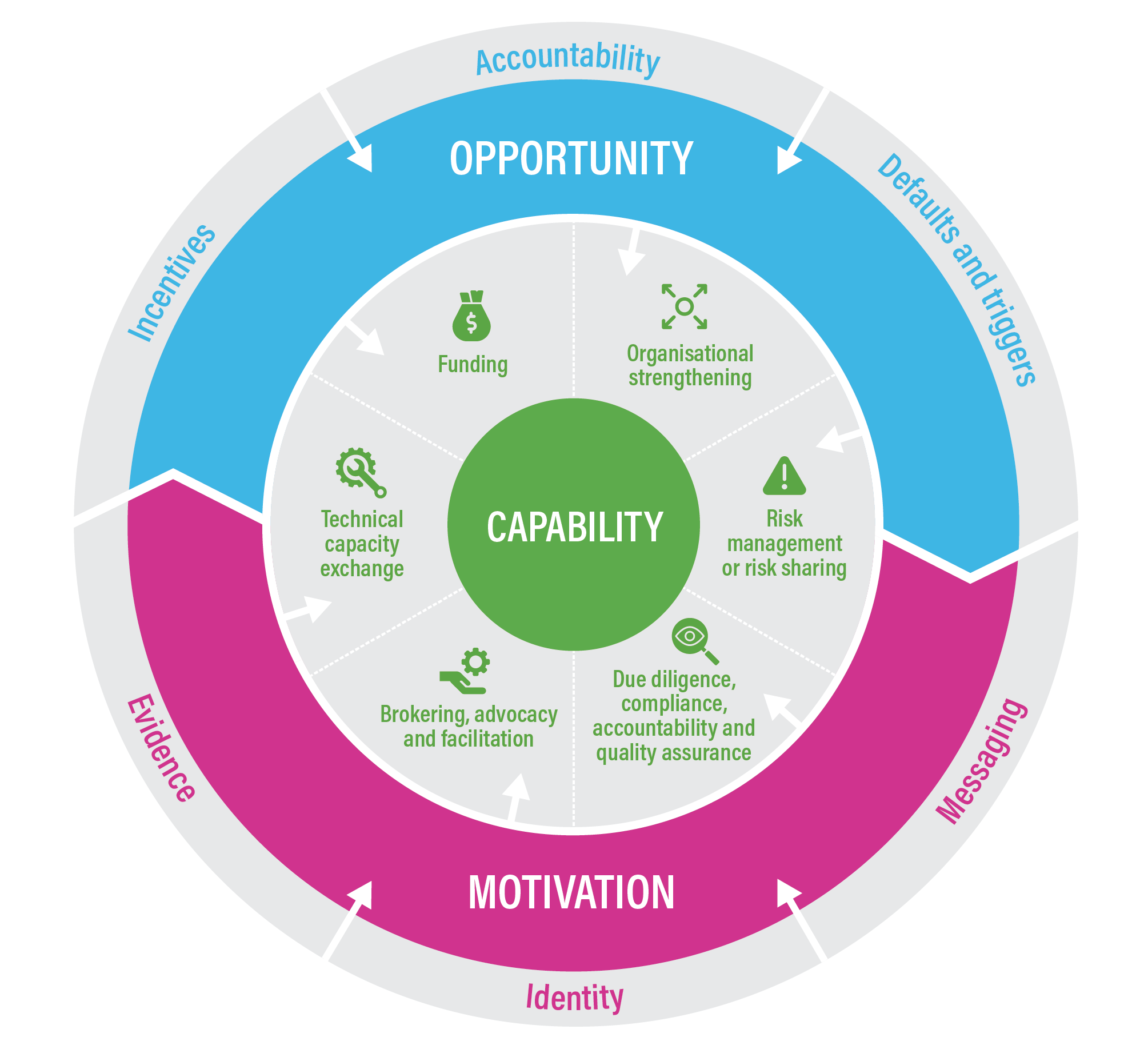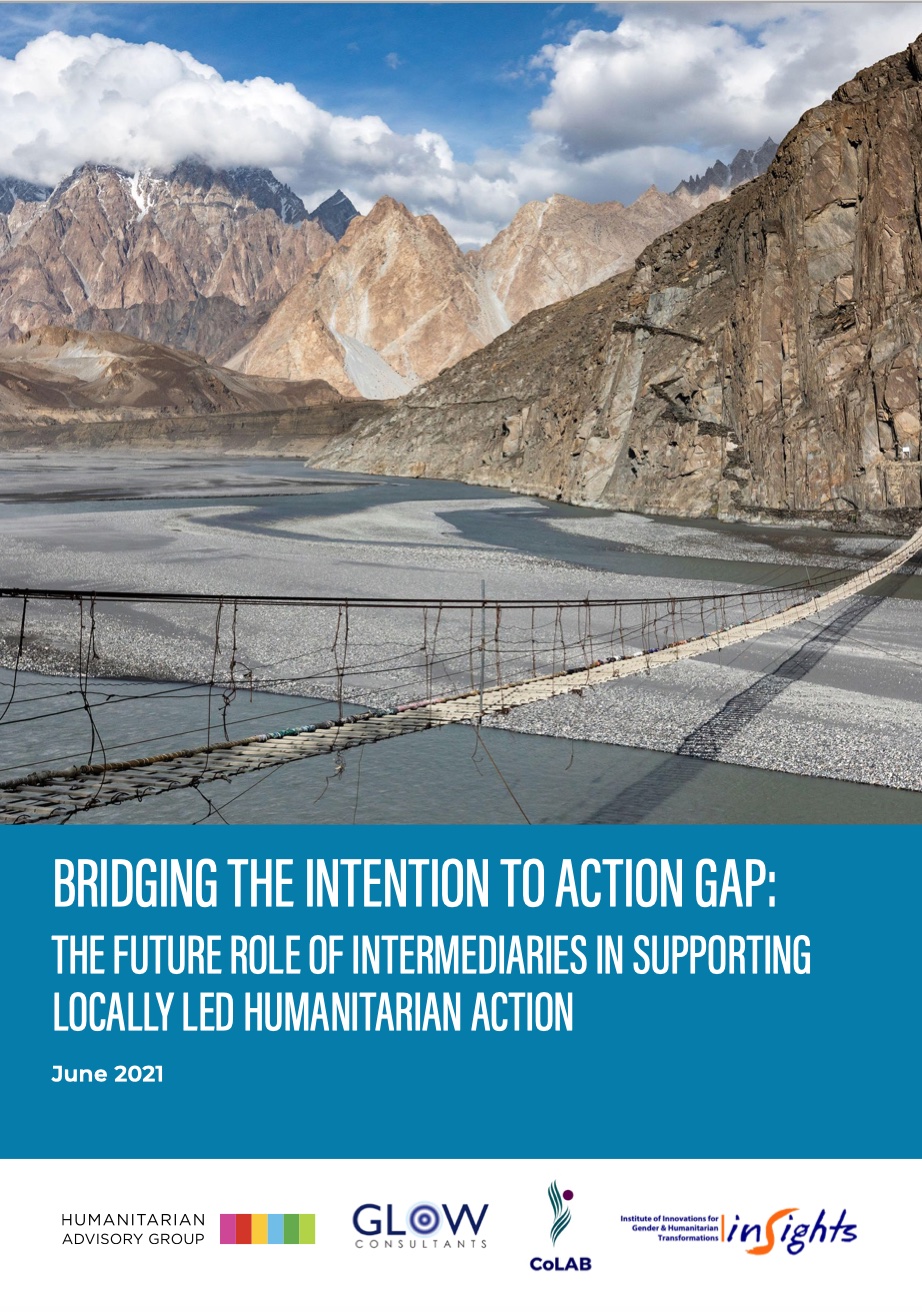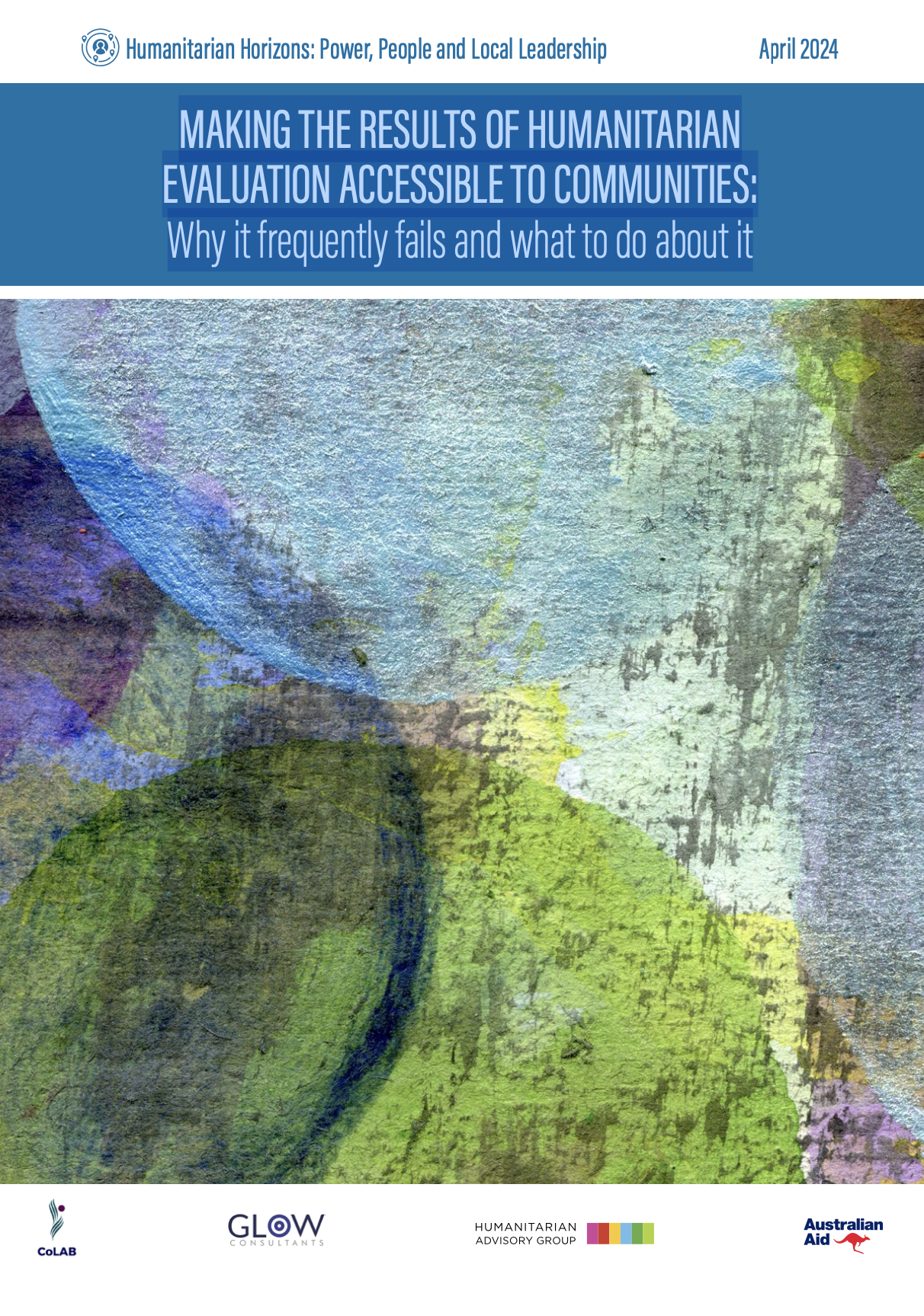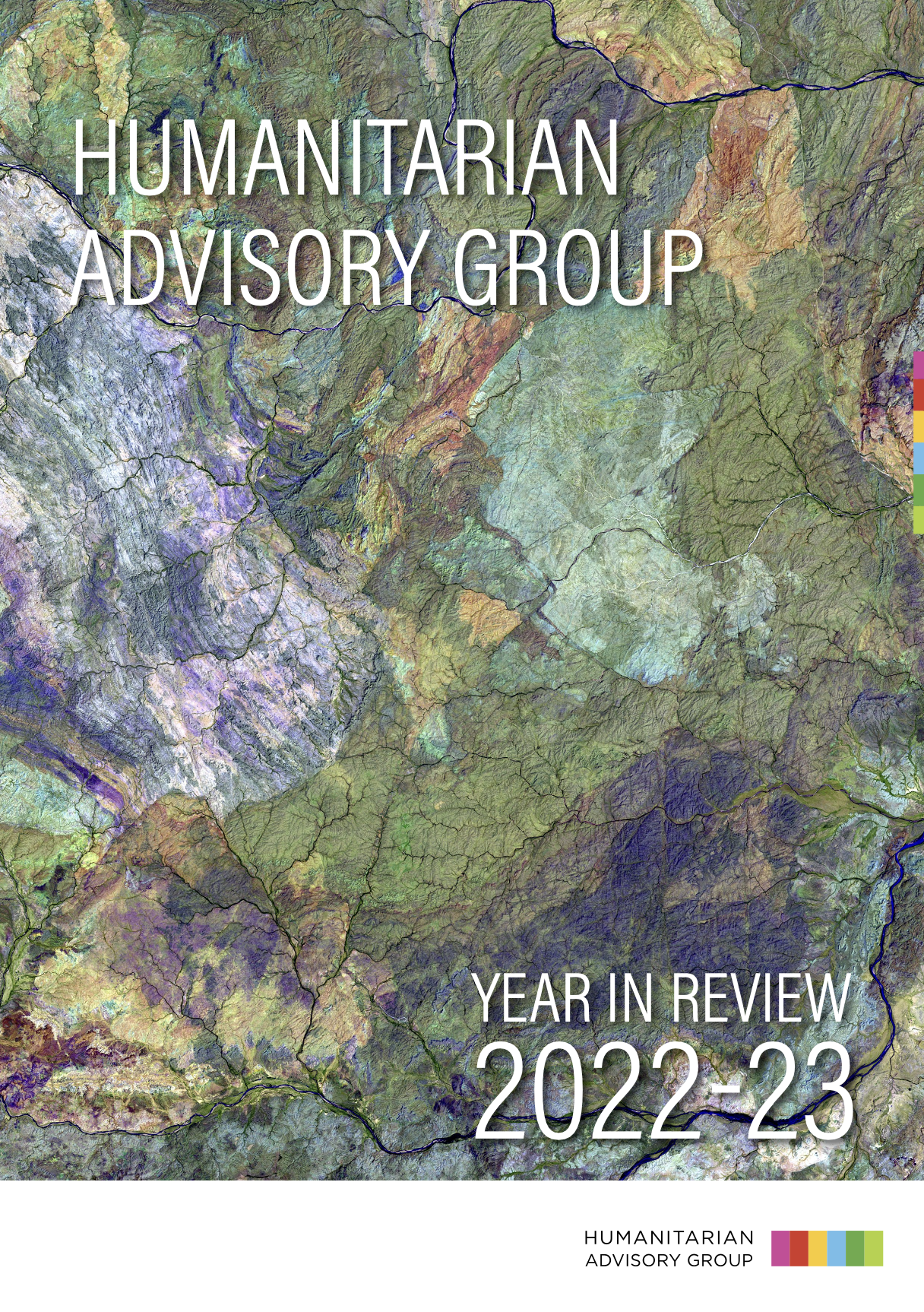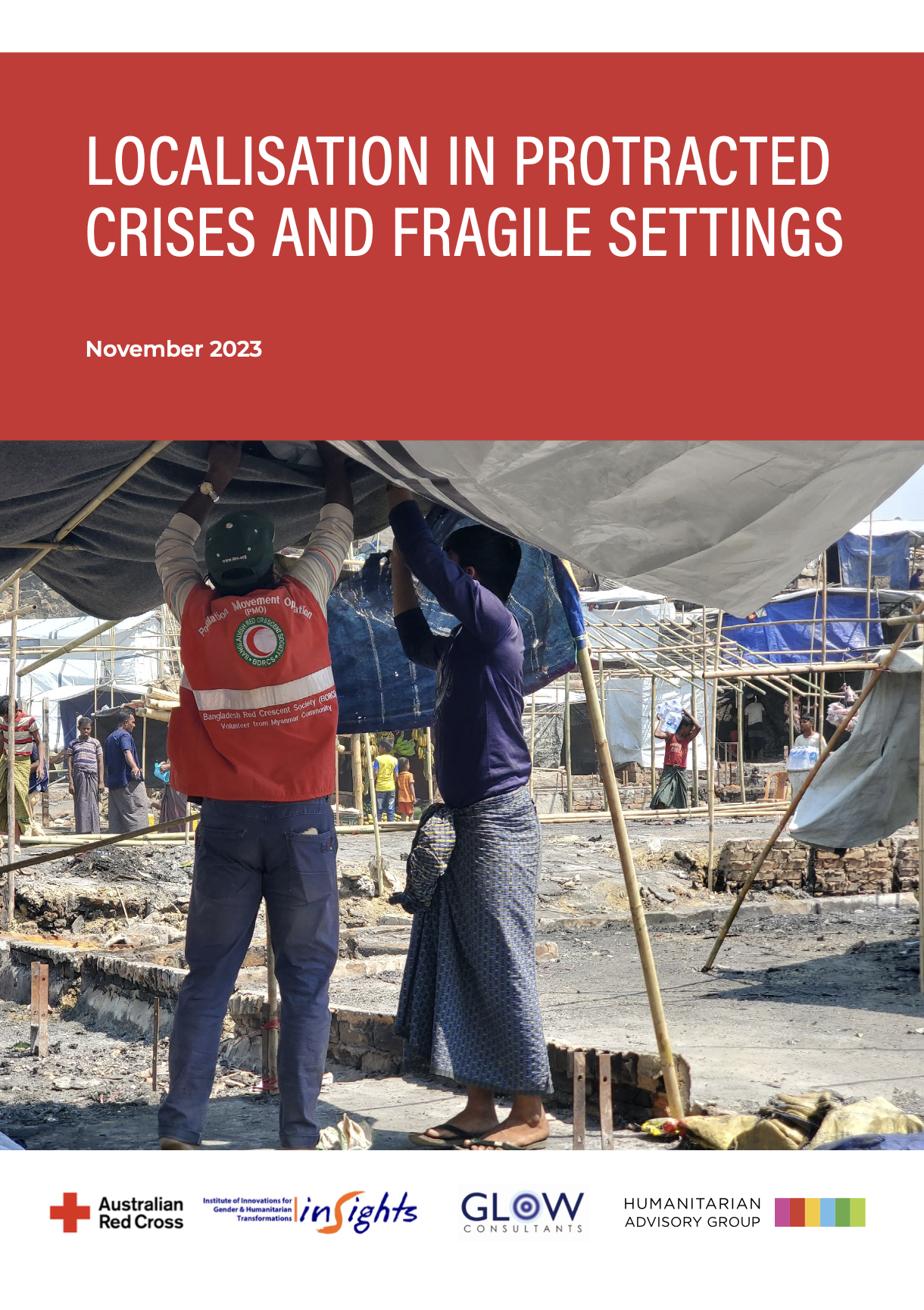Read the Executive Summary here.
Overview
Since the World Humanitarian Summit 2016, the discussion on locally led humanitarian action has evolved considerably. The debate has become more nuanced in many ways, and with respect to intermediaries, the discussion has become less polarised and more constructive. This research paper contributes to that constructive direction by recognising that intermediaries have a role to play but that the future role of intermediaries needs to change substantially from the current status quo.
The Grand Bargain Localisation Workstream 2 and its co-convenors, the International Federation of Red Cross and Red Crescent Societies and the Swiss Agency for Development and Cooperation, commissioned this study to explore the future role of organisations when acting as intermediaries. The study was conducted during April and May 2021 and involved over 100 stakeholders from 36 countries from across the humanitarian system.
Key Findings
The existing role of intermediaries needs to fundamentally shift to better support locally led action.
a. The balance of direct implementation and intermediary roles for organisations not local to context needs to shift. The existing balance is not considered to be appropriate or fit for purpose, and international organisations in many contexts continue to inappropriately default to direct implementation.
b. The role of the intermediary, when requested or required, needs to be more appropriate and accountable. Even when international organisations act as intermediaries, many local and national organisations do not receive the support they request or believe they need to maximise their effective contribution to the humanitarian system.
Barriers preventing change are currently far more powerful than the triggers that will motivate change.
Default processes, rewards for new behaviours and incentives are inconsistent and lack accountability. Even if there is intention to change as an intermediary organisation, the reality of enacting changed behaviours is often prohibitively complex, overwhelming and disincentivised.
Change is required in three key areas to achieve a more effective future role for intermediaries.
Concrete changes are required in the motivation for change; the opportunity for intermediaries to make easy choices that will effectively support change; and the deployment of capabilitiesthat are adapted according to actor and context to ensure a fit-for-purpose contribution.
Proposed model for the role of intermediaries
The model below captures the future role of intermediaries with six core capabilities to empower national and local organisations, recognising that capabilities alone will not facilitate the fundamental shift required without the motivation and opportunity for change.
